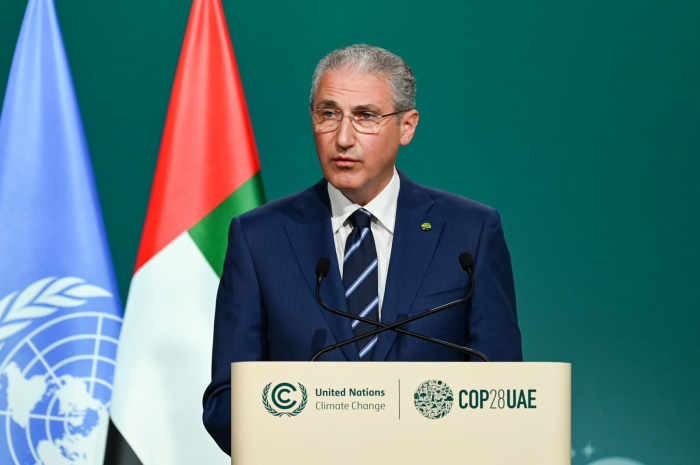"We have a moral obligation to these communities. Too often these costs fall on those on the front lines and those least able to pay," Babayev stated, AzVision.az reports.
He highlighted the economic burden of climate change on developing countries, where the cost of adaptation is estimated to range from 4 to 5 per cent of GDP annually. He emphasized that mounting debt only exacerbates these challenges, stressing the need to make climate finance work for these vulnerable communities.
“Throughout the year, we have shared our plan to strengthen ambition and deliver action with climate finance at the centre. These two mutually reinforcing principles are based on ambitious national climate plans and increased climate finance. The common message is that the needs are in the trillions,” he added.
Babayev further pointed out that the financial system must undergo broader reforms to meet the demands of climate action. “We will need to engage all actors in the financial system to overcome existing barriers. The Presidency appreciates the opportunity to hear your ideas today. Distinguished colleagues, at COP24, the multilateral banks (MDBs) reaffirmed their commitment to activities aligned with the Paris Agreement,” he said.
He praised the progress made by multilateral development banks in mobilizing climate finance, noting, “Since then, you have more than doubled mobilized climate finance between 2019 and 2023. You have outlined key actions for joint climate efforts in the Marrakech Statement, and MDB heads have shared key ways to strengthen climate action in 2024. You have been important partners in the common effort to keep the 1.5-degree target within reach, leaving no one behind.”
Reiterating his call for MDBs to increase adaptation finance for national plans, Babayev referenced the projection made this week by leading multilateral banks, which forecast that their annual collective climate finance will reach $170 billion by 2030, with $49 billion earmarked for adaptation finance.
COP29, being held from November 11 to 22 at Baku Stadium, marks Azerbaijan’s largest and most significant event to date and is the first time the country has hosted a COP summit. The event witnessed the signing of a Host Country Agreement and other crucial documents between the Azerbaijani government and the UN Framework Convention on Climate Change Secretariat.
A key focus of COP29 is the establishment of a fair and ambitious New Collective Quantitative Goal (NCQG) for climate finance. The presidency of COP29 has introduced 14 initiatives that connect climate action to the Sustainable Development Goals, including green energy corridors, energy storage, climate resilience, clean hydrogen, methane reduction from organic waste, green digital technologies, and more. One of the proposed initiatives is the creation of a Climate Finance Action Fund aimed at achieving the critical target of limiting global warming to 1.5°C.
Azerbaijan's commitment to mitigating climate change and protecting the environment has been evident throughout COP29. The unanimous decision to elect Azerbaijan as the host for this summit reflects the global community’s trust in the country’s leadership on climate action, as President Ilham Aliyev highlighted, underscoring Azerbaijan's important role in global climate efforts.
AzVision.az
More about: Azerbaijan COP29
















































